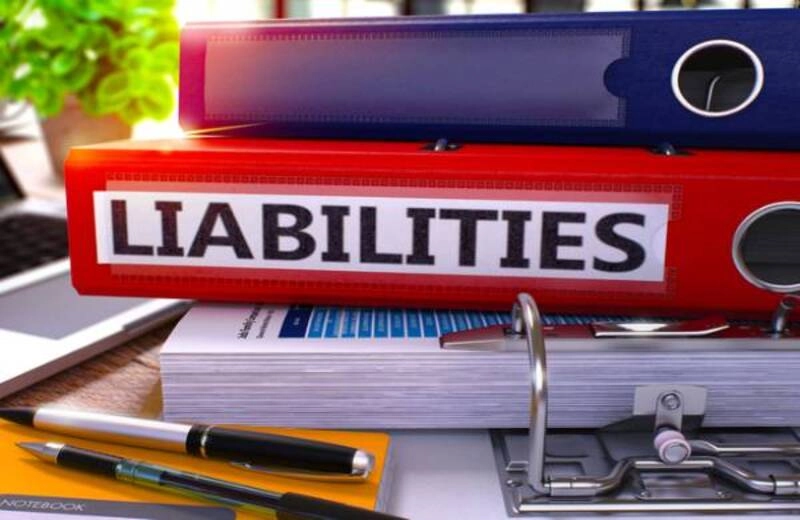Thursday 15th of October 2020
Merely the mention of the word liabilities can bring up the thought of never-ending debts in the
...minds of naive professionals. However, it is a com...

Merely the mention of the word liabilities can bring up the thought of never-ending debts in the minds of naive professionals. However, it is a commonly used term in the business circles. Every business has its assets and liabilities, and both these elements are relevant for gauging the financial viability of an entity. Liabilities sometimes entail legal obligations, but they are not always bad for the business and support its funding and expansion needs.
They usually comprise loans, debts and any other amounts which the business owes to lenders, banks, individuals and entities. The salaries and wages to be paid to the staff are also liabilities for the company as the organisation owes the sum to its workers.
Thus if you are looking for a profitable business for sale in Sydney, then make sure you know about all the liabilities that you will come across as the owner of the venture. Here is a rundown on all the significant aspects of business liabilities that will help you to understand it in depth.
What Are Liabilities?

In accounting terms, liabilities are the amounts that are to be paid to the creditors and are owed to others. These are listed under the payables category in the financial statements, such as accounts payable, salaries payable, tax payable, etc. Liabilities are part of every business unless it deals in cash transactions and are mentioned in the balance sheet on the right side. It can be categorised into three main types:
Contingent Liabilities That Are Legally Binding
Legal business liabilities are the ones that are owed when a customer sues a company for damages. These are contingent liabilities because they are owed only when a customer files a lawsuit. These include accidents and injuries suffered by clients when they visit your office or property damage of the customer by your service provider, infringement of intellectual property rights, injury to employees, etc.
All these situations can lead to legal disputes, and every small business must be ready to deal with such obligations. A business faces a liability only if the customer who has filed the lawsuit wins the case. If he/she loses the case, then there is no liability.
How Are Liabilities Different From Expenses
Expenditure is a fundamental part of running a business as it is directed towards generating revenue, and that is what makes it different from a liability. For example, paying the office lease and making utility payments is an expense. On the other hand, if you purchase a vehicle for business use and take a loan for it, then the loan is a liability. Expenditure and revenue are a part of the profit and loss statement, while liabilities and assets are a part of the balance sheet. The expenses which are not paid on time become liabilities for the business.
Liabilities depend on the method of making payments by the company. If you are borrowing money to purchase assets, then you are creating liabilities. Entrepreneurs using their business credit card for the purchase of assets also create liabilities for the business. If these payments are done upfront in cash, then there are no liabilities.
Thus to understand the financial health of a business, it is imperative to look at the balance sheet, which lists all the liabilities. This is the reason why the financial condition of the business is thoroughly examined during an acquisition to make sure you are buying a healthy business. You can check the accuracy of the balance sheet by adding the liabilities and equity, and the total should be equal to the total number of assets.
Business Insurance and Liabilities
Businesses in Sydney need to have some mandatory insurances including worker’s compensation insurance if your business has a staff, public liability insurance, which covers the company for third-party injury, and third-party personal injury insurance, which is obligatory if you own a vehicle. The worker’s compensation covers accidents and injuries that take place in the office and provides help to both the employee and the business in case of financial hardship.
Liability insurance covers you in case of injury to another person or property. It is not mandatory but should be acquired if your business is prone to be sued by disgruntled customers. However, it is obligatory for some specific industries. You must check for your business type before starting to trade as it can prove to be a saviour in a challenging circumstance.
Management liability insurance is yet another essential cover which saves the business or an individual from the unethical practices adopted by a manager or a director that can lead to financial losses.
Also, product liability insurance helps in situations where your product injures or damages another business or person. The professional indemnity insurance provides for the cost incurred due to a legal battle caused by professional advice. The technology and cybercrime insurance is another cover that helps in safeguarding the electronic assets and the business data from theft. So you must get them as soon as you start operating.
How To Assess Liabilities?

Businesses can analyse whether they have too many liabilities or not by calculating the debt to equity ratio and the debt to asset ratio. The debt to equity ratio calculates the sum of current and non-current liabilities against equity. The debt to asset ratio calculates the percentage of the sum of current and non-current assets against the total number of assets. Usually, the liabilities are assessed by looking at the balance sheet, which gives a clear picture of the assets, liabilities and owner’s equity.
Conclusion
Liabilities are an integral part of business management, and every entrepreneur should have sufficient knowledge about them. Thus if you are planning to invest in a business for sale in Sydney, then make sure you are well-versed in the information stated above.

Buying an established business is the one of the most lucrative decisions for aspiring individuals. Instead of spending years establishing brand awareness...

Australia is renowned as an open, thriving, and globally connected economy. With robust public and private sector collaboration, the nation boasts of...